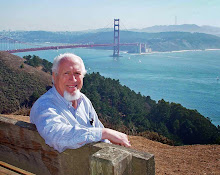Since psychiatrist Carl Jung first described the terms extravert and introvert they have become widely used to describe a certain personality traits. The person who is extroverted is outgoing in social relations, prefers to be involved with people and is energized when around other people. The introvert is just he opposite. He wants to be alone, enjoys private pleasures and is energized when alone.
Introversion and extroversion are seen as extremes on one continuum. So in a given test a person will register as either an introvert or an extrovert but we are all constantly changing. So there are times and certain situations when we will move up and down this scale.
Since it was first described by Jung this factor has been seen and tested in many ways. One test is a part of Guilford inventory (Factor T Thinking extroversion). It was also used by Nicol and Humphrey. There are some problems with the written test for “extroversion” though. There is a large amount of what is called, “Self-confidence" mixed in with the scale called “extroversion."
To quote the Dr. Gardner Murphy, “As measured then, extroversion may prove to consist primarily of the capacity to retain self-confidence despite social onslaughts upon it . . .”
Then it is no surprise, since self-confident people tend to score will on tests of psi ability, and extroverted subjects scored well most of the time, too. In the Nicol-Humphrey test, extroversion correlated with above-average clairvoyance scores with better than a .05 probability.
There was another test conducted by Eloise Shields, a school psychologist. She divided 98 school children, who were referred to her, into two groups on basis of personality tests and observations by her and other teachers. Twenty-four were classified as “withdrawn,” while 74 were classified as “Not-withdrawn.” The children who were Not-withdrawn scored significantly above chance on ESP, P = 000001 to be exact.
Now we must ask: why are extroverts more likely to be psychic? It would appear that the introverted person spends more time reflecting on the deeper nature of any question and would be more likely to sense answers from the next level. Further it would seem that an extroverted person rarely listens to that still small voice within that whispers answers from the great unknown universe. But isn’t it also possible that with every exchange in a social situation there is also a pause as when we listen and try to respond to that deeper question that the individuals in the group are asking. If a person is truly successful at the exchange of ideas and attitudes with a group they must be listening to a deeper level; perhaps even more often then they know. So an extroverted person actually is more frequently tuning in to that great psychic unknown than they are aware.
Conversely what about the introverted person that occasionally gets a flash of ESP? Here, I think, we must remember that even when a person is alone they may be thinking of those people in their lives that they would want to be with. In those quite moments they are thinking of what they would do when they next see their friends or lovers. So even an introverted person who is alone could often be thinking outside their current situation. Indeed this is often what a person reports when questioned about a psychic experience. They report that they were thinking about being with the person who was the center of their psychic flash of intuition.
—-
Murphy, G. 1947. Personality: A Biosocial Approach to Origins and Structure. New York: Harpers.
Nicol, J.F., and Humphrey, B.M. 1953. The exploration of ESP and human personality. The Journal of the American Society for Psychical Research 47: 133-178
Nicol, J. F., Humphrey, B.W. 1955. The repeatability problem in ESP personality research. The Journal of the American Society for Psychical Research 49: 125-156.
Shields, E. 1962. Comparison of child’s guessing ability (ESP) with personality characteristics. The Journal of Parapsychology 26: 200-210.
Sunday, August 24, 2008
Subscribe to:
Post Comments (Atom)


No comments:
Post a Comment